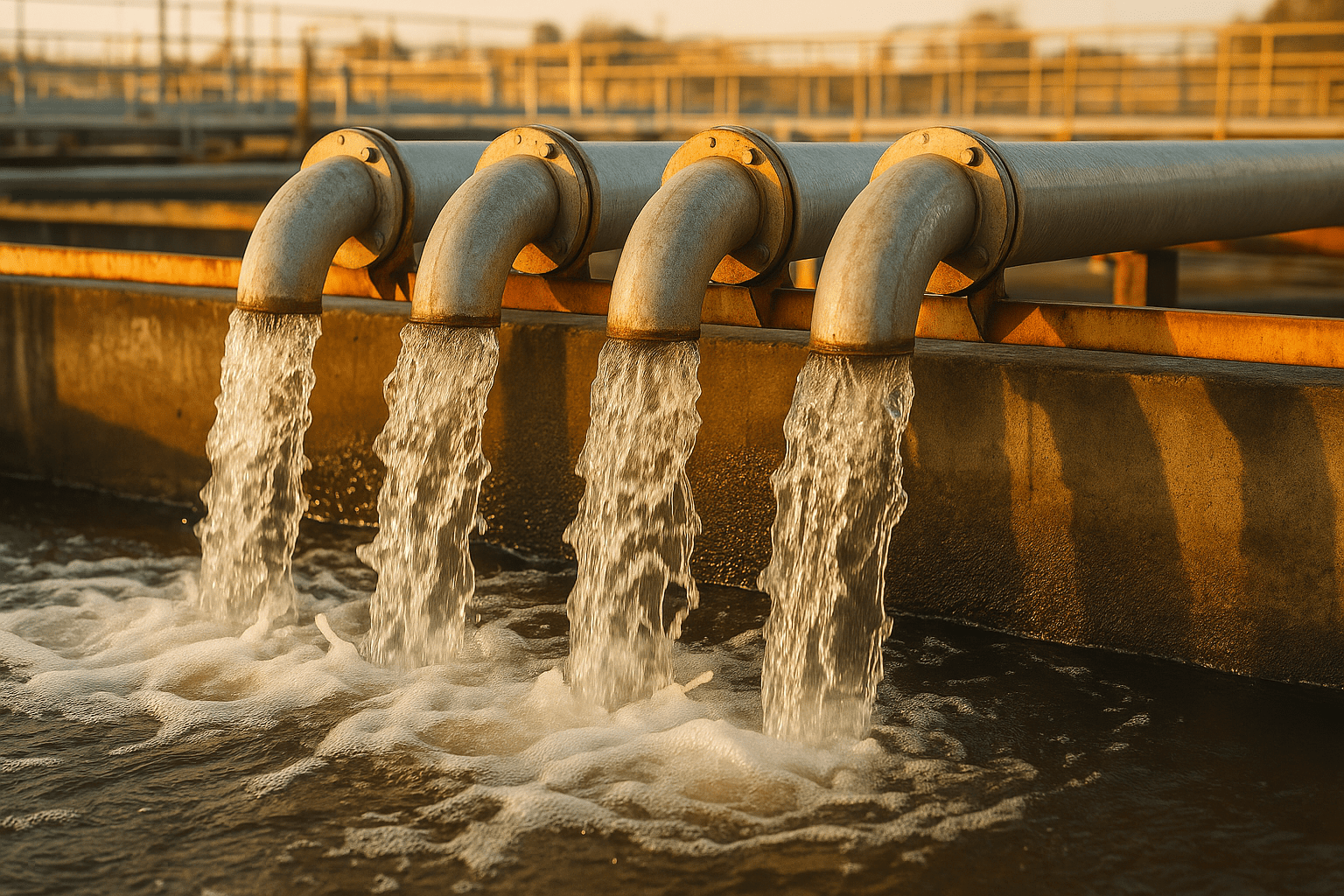- Bipartisan legislation proposes tax incentives for water recycling investments.
- Industrial, data center, and municipal reuse projects would qualify.
- Supporters say it could boost efficiency while reducing freshwater withdrawals.
Friday, October 24, 2025 — A bipartisan proposal in Congress could make it easier and more affordable for companies to invest in recycled water systems. Introduced on April 17, 2025, by Representative Darin LaHood of Illinois, H.R. 2940 — the Advancing Water Reuse Act , would amend the Internal Revenue Code to create a 30 percent investment tax credit for qualifying water reuse projects.
, would amend the Internal Revenue Code to create a 30 percent investment tax credit for qualifying water reuse projects.
The bill, now before the House Committee on Ways and Means, is co-sponsored by a cross-section of lawmakers including Representatives Linda Sánchez (D-CA), Claudia Tenney (R-NY), Brad Schneider (D-IL), Brian Fitzpatrick (R-PA), Hillary Scholten (D-MI), Kathy Castor (D-FL), Eugene Vindman (D-VA), Sean Casten (D-IL), and Sarah McBride (D-DE).
How the Credit Would Work.
If enacted, the measure would allow industries such as manufacturing, food processing, and data centers to claim a credit covering 30 percent of the cost of eligible property used in water reuse projects. Qualified property must be tangible, depreciable equipment or infrastructure that forms part of a water recycling system.
Eligible projects include:
-
Installing or upgrading on-site water recycling systems within industrial or manufacturing facilities.
-
Replacing the use of freshwater with recycled water supplied by a municipal system.
-
Building or expanding municipal recycling systems to support industrial use.
Projects that begin construction after December 31, 2032, would no longer qualify for the credit.
Special Provisions for Utility Partnerships.
The bill also includes provisions for joint projects between industries and utilities. If a private company builds infrastructure and transfers it to a utility under a written agreement, the company—not the utility—could still claim the credit. This clause is intended to promote public-private cooperation in developing new recycling capacity.
Encouraging Local Reuse and Resilience.
The WateReuse Association , which represents utilities, private firms, and public agencies dedicated to recycled water, has endorsed the measure and called on members to urge additional congressional support.
, which represents utilities, private firms, and public agencies dedicated to recycled water, has endorsed the measure and called on members to urge additional congressional support.
In an October 20, 2025 statement, the association said water reuse can “unleash opportunity and efficiency for U.S. manufacturing, data centers, and other industrial entities.” It emphasized that expanding reuse infrastructure could conserve scarce freshwater supplies and strengthen local economies through sustainable industrial growth.
According to WateReuse, the bill’s bipartisan support reflects growing recognition that water recycling is a “practical, technology-ready” solution to drought and demand pressures nationwide.
Next Steps.
As of October 24, 2025, H.R. 2940 remains in committee . Advocates hope to see the measure folded into a larger tax package or advanced as a standalone bill before the end of the current session. The proposal aligns with wider federal efforts to modernize infrastructure and promote circular water use across industries.
. Advocates hope to see the measure folded into a larger tax package or advanced as a standalone bill before the end of the current session. The proposal aligns with wider federal efforts to modernize infrastructure and promote circular water use across industries.
FAQ
What is the Advancing Water Reuse Act?
It’s a bill that would give a 30 percent federal tax credit for investments in eligible recycled water systems at industrial, data center, food processing, or municipal facilities.
Who sponsors the bill?
The bill was introduced by Rep. Darin LaHood (R-IL) with bipartisan cosponsors from both major parties.
What types of projects would qualify?
Projects that install or upgrade on-site recycling systems, replace freshwater with recycled water, or expand municipal water reuse infrastructure.
When would the credit expire?
Projects that begin construction after December 31, 2032, would no longer be eligible.
Why does it matter?
Water reuse reduces strain on freshwater sources, helps industries adapt to water scarcity, and promotes sustainability in the nation’s infrastructure investments.



